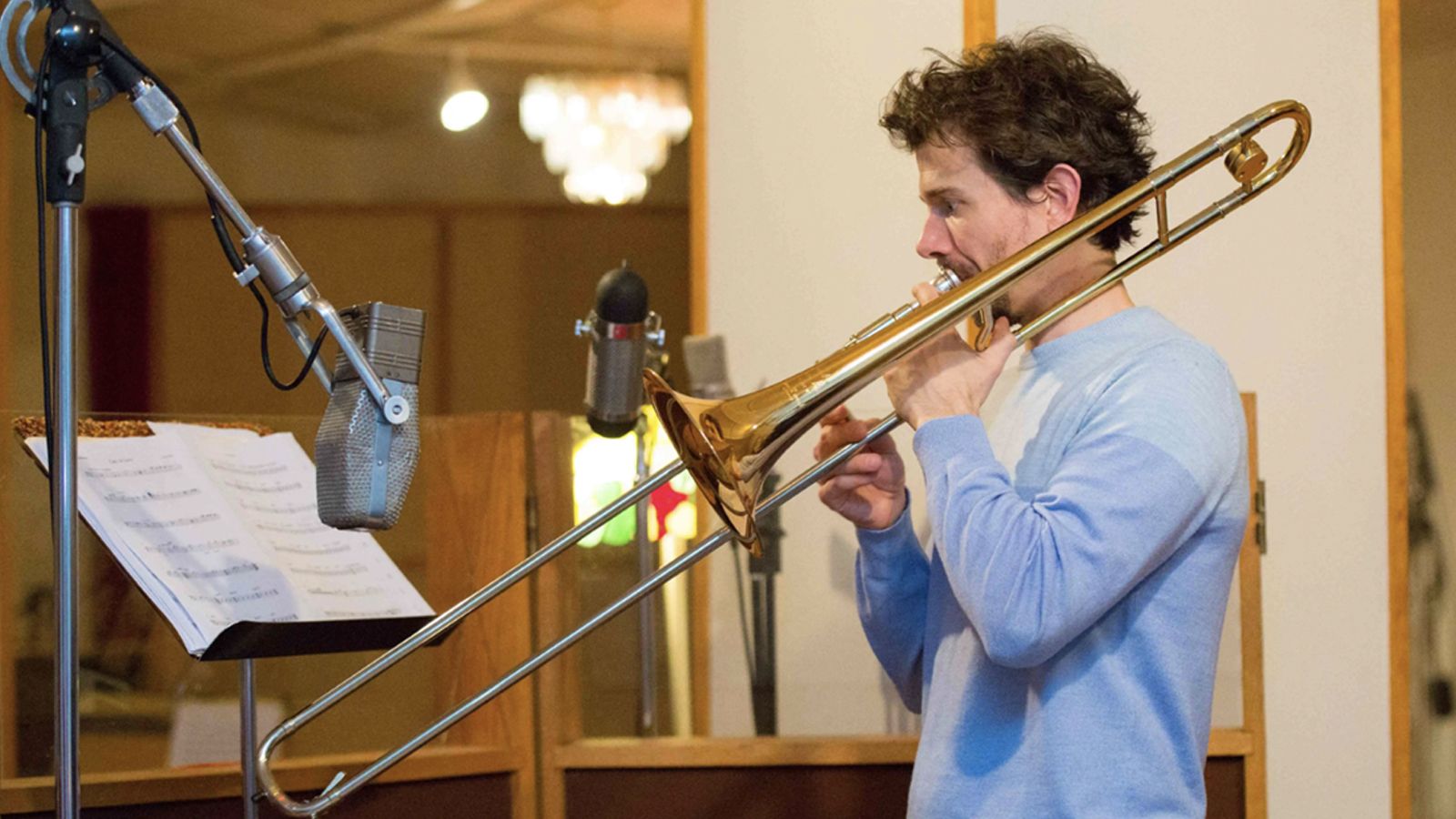As the world celebrates International Jazz Day April 30, Hunter’s jazz students are learning from a master.
Longtime Professor of Music Ryan Keberle, who directs Hunter’s Jazz Studies program, is a renowned jazz trombonist and composer, whose recent albums — Music is Connection and Bright Moments, were selected for Downbeat’s ‘Editor's Picks’ and Jazz Times’s “Best of 2024.” A working musician, he tours with three bands and composes and records in studios in New York, Paris and Sao Paulo.
Keberle has shaped Hunter’s jazz program for more than two decades. He is the first full-time professor of jazz music the college has hired and, under his leadership, the program has flourished by embracing many musical styles, reflecting students’ diverse backgrounds.
Keberle said diversity fosters an environment in which students learn from each other and gain new perspectives, enriching the musical experience for everyone.
Keberle grew up in a musical environment. His father is a jazz trumpeter who recently retired from teaching music at Whitworth University in Washington state. His mom is a piano teacher and longtime church music director. His grandparents were music educators.
“Teaching has always been a part of my life,” Keberle said. Even when he was in high school, Keberle taught private trombone lessons; his first job out of college was running a youth jazz band.
Under Keberle, Hunter's music students not only get an education, but also see how a 21st-century musician sustains a healthy career.
Like many musicians, Keberle found his world drastically altered during the Covid-19 pandemic. Unable to perform in person, he took to recording at home, which became a lifeline for himself and other musicians during that isolating time.
“That’s where all the material for the new albums came from,” he said.
Music is Connection, which he recorded with his band Catharsis, was the first album they released since the pandemic. The result, according to Downbeat magazine: “sensational” and “completely satisfying and exquisitely performed.”
Keberle said the album was a full-circle moment for his band, coming 10 years after its debut, Music is Emotion. Both records were partly funded by a CUNY grant.
“The thing we all learned the most was just how important connection is, and specifically for musicians, how much of that connection we get through music and how much of it we didn’t get,” he said. “We always had it, but we just took it for granted, and it was very difficult.”
The album was a way to celebrate and recognize how the connection made through music brings musicians together with their audiences and with each other.
“Music has also allowed us to share with many others the belief that we hold dear: That through aural and physical connections, music can deepen one’s ability to hear more detail, more clearly, not just to music but to each other, and potentially deepen one’s ability to feel and empathize, making the world a more empathetic place,” Keberle wrote in a press release to accompany the album’s release.
With 17 albums, Keberle is a prolific force in the jazz world, which he attributes to successful grant writing and his employment at Hunter College. “Without these grants, I wouldn’t be able to tour to support the music, and that’s super important,” he said.
As an educator, Keberle said he finds fulfillment in nurturing the next generation of musicians. In fact, he thinks that the pandemic ultimately enriched classroom teaching.
“Really what we did was listen — that’s all that we could do. We could share music with each other. And all that listening really paid off,” he said.
Keberle said most professional musicians listen in an active way that must be taught.
“Everybody hears music differently. We all experience music differently. And, so, as a music educator, it’s really our job to try and help our students hear what we’re hearing. And that’s not easy to do. It’s a very personal experience.”


